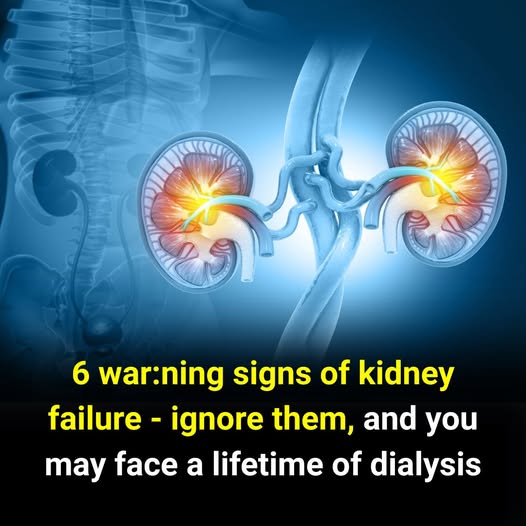Kidney failure is often seen as a condition affecting the elderly or those with chronic illnesses, but alarming trends show it’s increasingly striking younger individuals. The kidneys, essential for filtering waste and balancing fluids, can begin to fail without loud warning bells. Recognizing the early symptoms could be the key to preventing irreversible damage and life-threatening complications.
One of the most overlooked signs is persistent fatigue. When your kidneys are not functioning properly, toxins begin to accumulate in the body, making you feel unusually tired or weak—even after a full night’s rest. Swelling in the ankles, feet, or face is another red flag. This fluid retention occurs because the kidneys are not removing excess fluid effectively. If you notice puffiness or unexplained weight gain, it might not just be your diet—it could be your kidneys sounding an alarm.
Changes in urination are also critical to monitor. A sudden need to urinate more often—especially at night—or noticing dark, foamy, or bloody urine may indicate kidney distress. Accompanying this, you might experience nausea, vomiting, or a metallic taste in the mouth due to the buildup of waste products. These symptoms can be easily mistaken for other illnesses, which is why regular checkups and blood tests are essential, even for those under 40.
Disclaimer: This article is for informational purposes only and is not a substitute for professional medical advice, diagnosis, or treatment. If you are experiencing any of the symptoms mentioned above, please consult a licensed healthcare provider immediately. Early detection and medical intervention can significantly improve outcomes and may prevent serious complications.
